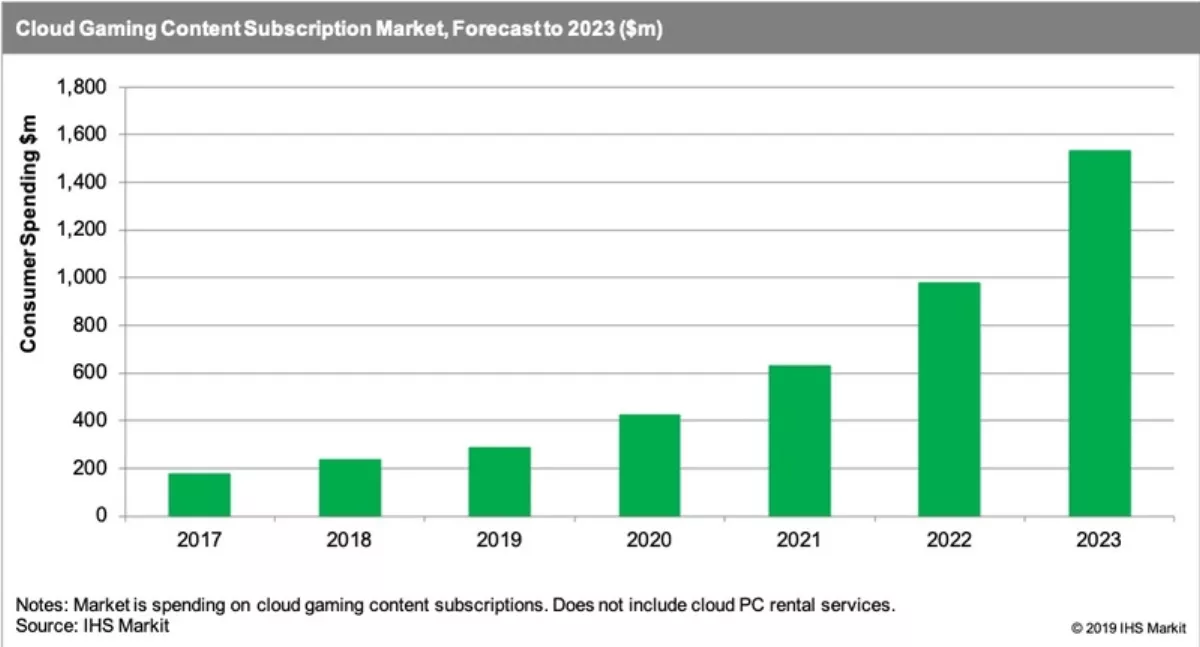
A new report from IHS Markit has revealed a number of major cloud service providers have many of the attributes to make a successful entrance into the cloud gaming market.
These include Microsoft, Tencent, and Google, among others. It's easy to see the logic in it, as data from IHS Markit reveals consumer spending on cloud gaming content subscriptions reached US$234 million in 2018, and is set to surge to $1.5 billion by 2023.
“Competitive differentiation in the next wave of cloud gaming services will be focused on two key areas: cloud infrastructure and content,” says IHS Markit games research and analysis director Piers Harding-Rolls.
“Microsoft is well positioned in both these critical areas. It has ready access to its own Azure cloud data centers situated around the world, plus it has a strong portfolio of content to draw upon, for its upcoming cloud gaming service.”
According to ‘Next Generation Cloud Gaming', a new report from IHS Markit, there are many types of companies eyeing up the cloud gaming opportunity. Like telcos, technology companies, and media companies, cloud service providers want to extend their influence in the games content and service market, which was worth $128 billion in 2018.
“Cloud service providers already offer cloud-based tools to game developers,” says Harding-Rolls.
“Being active in cloud gaming allows cloud service providers to synergize their infrastructure investments with their consumer-facing content and services. As the momentum builds behind a revitalised cloud gaming market, cloud service providers recognise the disruptive potential of the technology and their cloud infrastructure competitive advantage.

In terms of the strengths and weaknesses of vendors, each one brings something different to the table.
According to Harding-Rolls, Tencent's cloud services have less geographical coverage compared to the other cloud service providers, but the company has a strong portfolio of games content and it dominates the huge games market in China.
“As with Microsoft, this combination of cloud infrastructure and content means it is well positioned to take advantage of the cloud gaming market as it builds momentum,” Harding-Rolls says.
While Google's cloud business is more extensive than Tencent's, and it owns the Google Play storefront and YouTube, it does not have a comparable games content portfolio, so the company will have to purchase exclusive content -- and even acquire games developers or publishers – if it is fully committed to extending its role in the games-sector value chain.
Harding-Rolls says cloud service providers are uniquely placed to capitalise on this market given their cloud infrastructure and service delivery capability, giving them a significant advantage over many companies already operating in the cloud gaming market or seeking to enter it.
“If they build a compelling portfolio of games content, cloud service providers could potentially start to disrupt the established order of the console and high-end PC games markets over the next three to five years,” Harding-Rolls concludes.